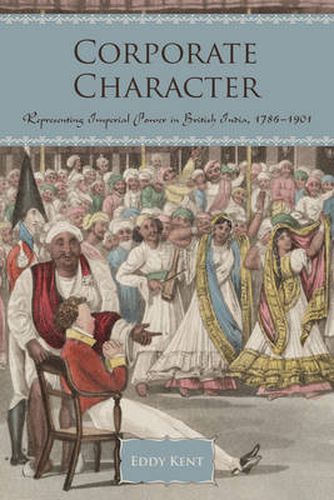Readings Newsletter
Become a Readings Member to make your shopping experience even easier.
Sign in or sign up for free!
You’re not far away from qualifying for FREE standard shipping within Australia
You’ve qualified for FREE standard shipping within Australia
The cart is loading…






The vastness of Britain’s nineteenth-century empire and the gap between imperial policy and colonial practice demanded an institutional culture that encouraged British administrators to identify the interests of imperial service as their own. In Corporate Character, Eddy Kent examines novels, short stories, poems, essays, memoirs, private correspondence, and parliamentary speeches related to the East India Company and its effective successor, the Indian Civil Service, to explain the origins of this imperial ethos of virtuous service.
Exploring the appointment, training, and management of Britain’s overseas agents alongside the writing of public intellectuals such as Edmund Burke, Thomas Malthus, Thomas Babington Macaulay, and J.S. Mill, Kent explains the origins of the discourse of virtuous empire as an example of corporate culture and explores its culmination in Anglo-Indian literature like Rudyard Kipling’s Kim. Challenging narratives of British imperialism that focus exclusively on race or nation, Kent’s book is the first to study how corporate ways of thinking and feeling influenced British imperial life.
$9.00 standard shipping within Australia
FREE standard shipping within Australia for orders over $100.00
Express & International shipping calculated at checkout
The vastness of Britain’s nineteenth-century empire and the gap between imperial policy and colonial practice demanded an institutional culture that encouraged British administrators to identify the interests of imperial service as their own. In Corporate Character, Eddy Kent examines novels, short stories, poems, essays, memoirs, private correspondence, and parliamentary speeches related to the East India Company and its effective successor, the Indian Civil Service, to explain the origins of this imperial ethos of virtuous service.
Exploring the appointment, training, and management of Britain’s overseas agents alongside the writing of public intellectuals such as Edmund Burke, Thomas Malthus, Thomas Babington Macaulay, and J.S. Mill, Kent explains the origins of the discourse of virtuous empire as an example of corporate culture and explores its culmination in Anglo-Indian literature like Rudyard Kipling’s Kim. Challenging narratives of British imperialism that focus exclusively on race or nation, Kent’s book is the first to study how corporate ways of thinking and feeling influenced British imperial life.